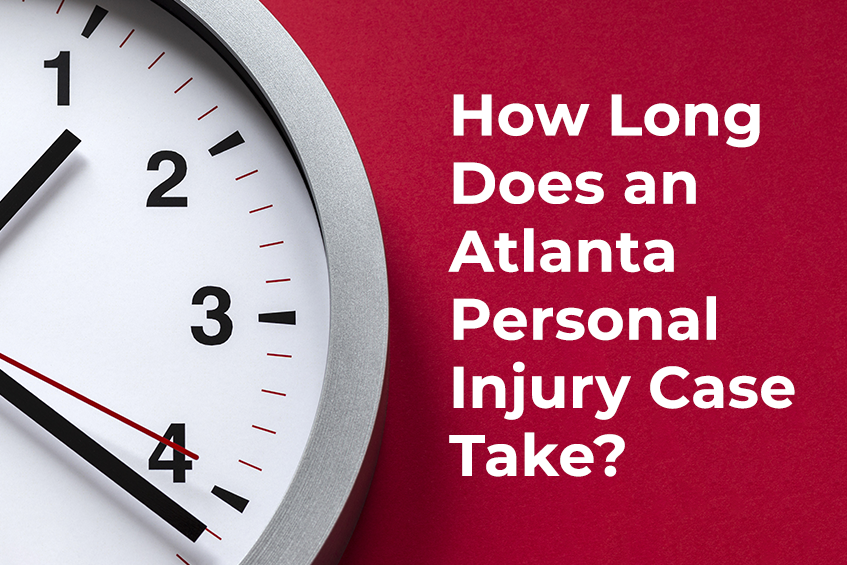
My new clients often ask how long it will take to resolve their personal injury claims. While every situation is highly individualistic, some common factors affect the timeline of most cases.
It’s important to remember that legal proceedings take time. Even in an uncomplicated case with ample documentation, it could take a year or more to receive your settlement.
Not to worry; our Atlanta personal injury law firm specializes in handling personal injury claims in Atlanta.
If you’re planning to pursue a personal injury claim in Atlanta, here is the approximate timeline you can expect and the steps you should take along the way.

Immediately
Contact Law Enforcement
If you are injured and believe another party should be held liable, you should immediately contact the police. Even if an accident or fall seems minor, it is important to have an official report of the incident. Some accidents may seem trivial when they occur, and their more severe consequences are only apparent over time.
One of the most common injuries that stems from car accidents is whiplash. Whiplash occurs when the head is snapped violently back and forth; it can lead to migraines, dizziness, blurred vision, and numbness in the extremities. Most whiplash injuries occur when vehicles collide at less than 14 mph. In many cases, the effects of whiplash aren’t apparent for a week or more.
If you’re in a fender-bender, it can be tempting to walk away without notifying the authorities. However, if you don’t get a police report following the incident and you later develop symptoms of an injury, it will be nearly impossible to pursue the other party for compensation.
Consult An Attorney
Once the police have responded, it’s time to find someone to represent you. Even the most straightforward-seeming cases can quickly become complicated, so it’s important to have the guidance of an experienced attorney.
It can be tempting to put this task off, but it is crucial to secure a legal advocate during the aftermath of an accident. Your attorney can help you if the police report contains inaccuracies, and they will advise you on how to deal with the liable party.
You’ll likely be contacted by the other party’s insurance company within days of the incident. Insurance companies are notorious for denying valid claims due to small technicalities; innocuous words in your story of the accident could get your claim denied. Or the company could agree to settle with you, but for far less than you deserve.
Here, a lawyer’s expertise is invaluable. Your attorney will advise you on how to communicate with these other parties to protect your interests.
Davis Injury Firm has represented thousands of plaintiffs in cases involving hit and run drivers, negligent security, DUI, slip and fall, and work injury claims in Atlanta.

48 Hours
Seek Medical Care
The longer you wait to visit a doctor, the harder it becomes to prove your case. Insurance companies, or your opponent in the case, may try to claim your injuries were unrelated to the incident.
If you are injured in an accident or due to negligence by another party, you should visit a doctor within 48 hours. Make sure to tell your physician about the accident and make sure it is noted in your file.

72 Hours
Contact Insurance Agencies
You should report any accident to relevant insurance companies as soon as possible. It is best practices to file a claim within three days but not necessarily required.
Most insurance policies require accidents be reported immediately; if you wait too long to notify your provider, you could forfeit your right to receive benefits. Your own policy might not cover you if the other party is uninsured. It is imperative to report accidents as soon as they occur.
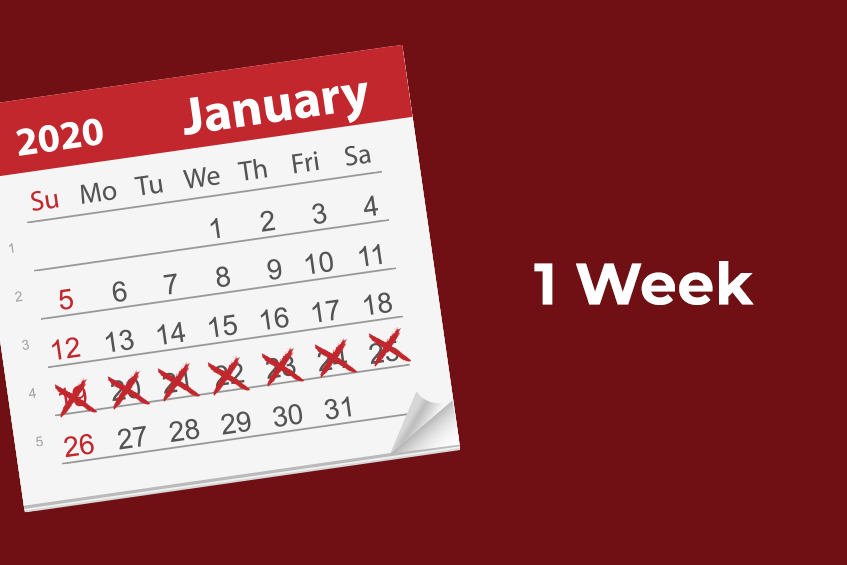
1 Week
Compile Records
Gather any evidence that backs up your claim. This can include photos, contact information for witnesses, or documents (like a police report).
You should also keep any receipts related to the accident. The costs of medical care, prescription drugs, car repairs, and more could all be owed to you. Be thorough when you compile these documents; some costs related to your injury may not be immediately obvious. If you normally perform maintenance around your home but have to hire a contractor while you are incapacitated, that cost could ultimately be covered.
Take Photos
These days, nearly everyone carries a camera at all times. If you are injured, be sure to photograph the scene of your accident. You can do this immediately or several days after the fact – but don’t wait too long. If you fell down a set of stairs, for example, the homeowner could have them repaired before you’re able to come back and inspect them. Take pictures of anything in the area that could be relevant, including skid marks on the road, missing or obscured street signs, broken handrails, etc.
Be thorough with your documentation and include pictures of visible injuries. Scrapes, cuts, and bruises will fade over time, but photographic evidence can prove the severity of your accident.
Follow Doctors’ Orders
You will need to complete treatment for your injuries before you can file a claim. Do not try to rush through your recovery; it’s important to heal as much as possible before litigation begins, so you know the total amount of damages you will be seeking.
While you recover, keep a daily journal of your medical progress—detail how you are feeling and what steps you followed in your treatment plan. You don’t have to write much (a few sentences a day is sufficient), but a medical diary could be useful in proving your claim.
Do not skip appointments or go against your treatment plan. Failure to follow your doctor’s plan could be used as evidence that your injuries are not as severe as claimed.
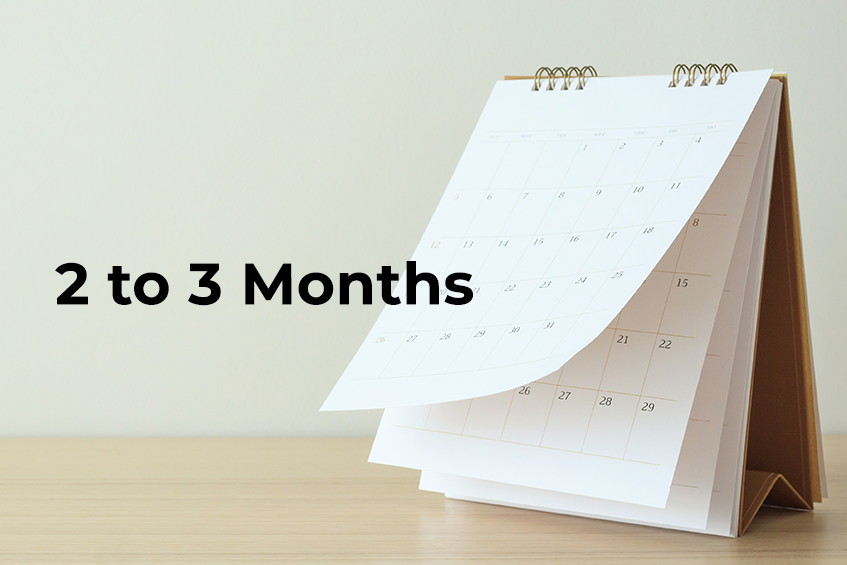
2 to 3 Months
File Your Claims
You will generally need to wait at least long enough to obtain thorough medical treatment for your accident before it makes sense to make a demand for payment. This period will allow you to recover from your injuries, and relevant medical bills will have arrived.
You will have to play the waiting game when dealing with legal matters, but don’t let the months slip away from you; the statute of limitations on personal injury claims in Georgia is two years. If you want to hold the negligent party responsible for your injuries, you will need to pursue the case within that time period.
Once your claim is submitted, the insurance company, homeowner, or other liable party has a 30-day window in which to respond in “good faith.” In Atlanta, insurance companies or at-fault drivers have a minimum of 30 days to settle bodily injury claims. If the other party refuses to honor your claim, they could be acting in “bad faith,” and your attorney will pursue the matter further.
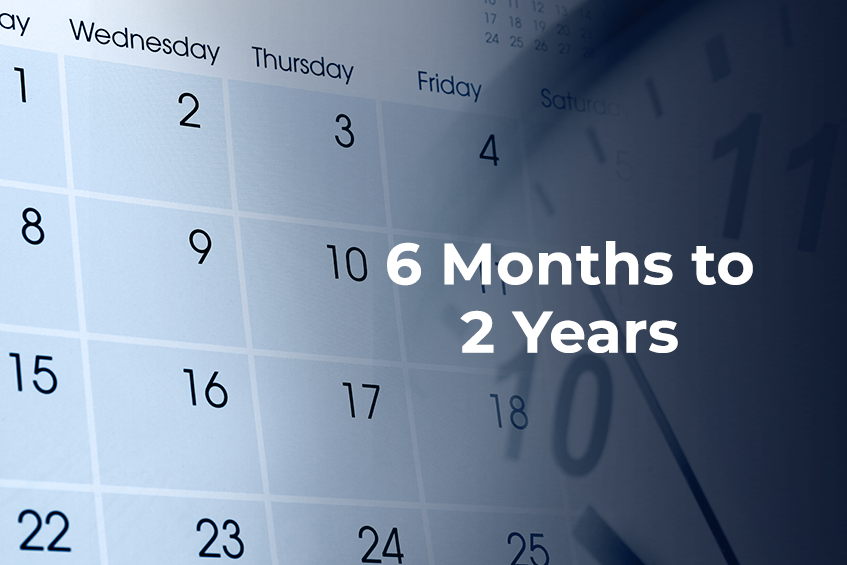
6 Months to 2 Years
Negotiate A Settlement
You may want to reach an agreement without the hassle and stress of a trial. An attorney can attempt to negotiate a settlement with the insurance company, individual, or corporation liable for your injuries.
File a Lawsuit
If a fair settlement cannot be reached, your lawyer will file a lawsuit on your behalf. This also maintains your right to sue other responsible parties; the statute of limitations in personal injury cases is not applicable once a legal challenge is made. Even if you lose your initial suit, you will still be able to pursue compensation from other responsible parties.
Go to Trial
Going to trial is the last step in resolving a case if it cannot be settled. From the time you file a lawsuit to the time trial is commenced could be years. During those years, you could settle your case in numerous ways, including negotiations with the other side and mediation.
The financial compensation awarded in personal injury cases is called “damages.” In Georgia, damages are classified into three categories: general, special, and punitive. Special damages can be assigned a specific dollar amount (like medical bills, lost income, or out-of-pocket expenses). In contrast, general damages cannot (pain and suffering, mental anguish, loss of enjoyment of life).
Punitive damages are only awarded in rare cases, where the defendant was found to have acted with wanton, malicious intent. These damages are intended to punish the responsible party, in addition to compensating the injured.
There is no cap on the amount of damages you can receive in the City of Atlanta. The Georgia Supreme Court ruled that damage caps are illegal in 2010.
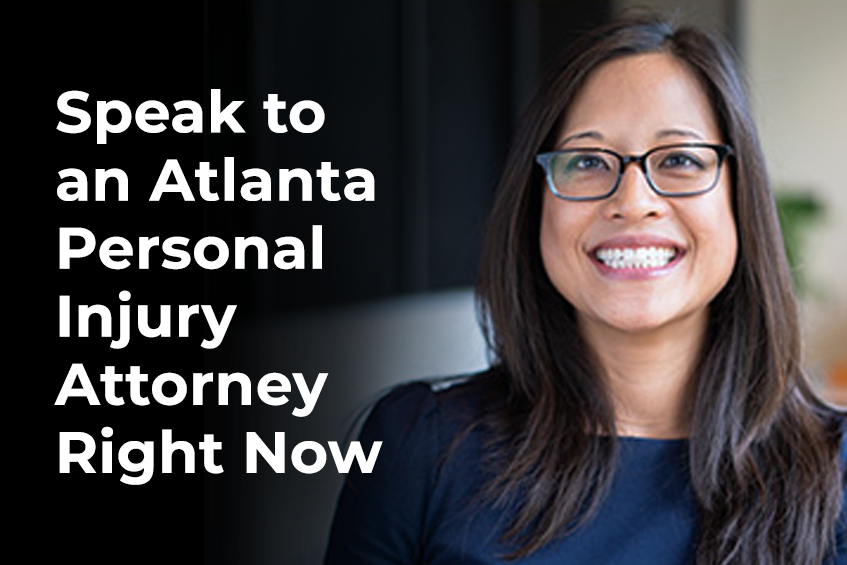
Speak to an Atlanta Personal Injury Attorney Right Now
If you were injured in Atlanta and believe another party is responsible, contact the personal injury lawyers at the Davis Injury Firm right now. Our team is dedicated to achieving justice for our clients.
Call Davis Injury Firm right now at (404) 647-0722 – you don’t pay until we win.

